Lab 046: Do Not Disturb Part II
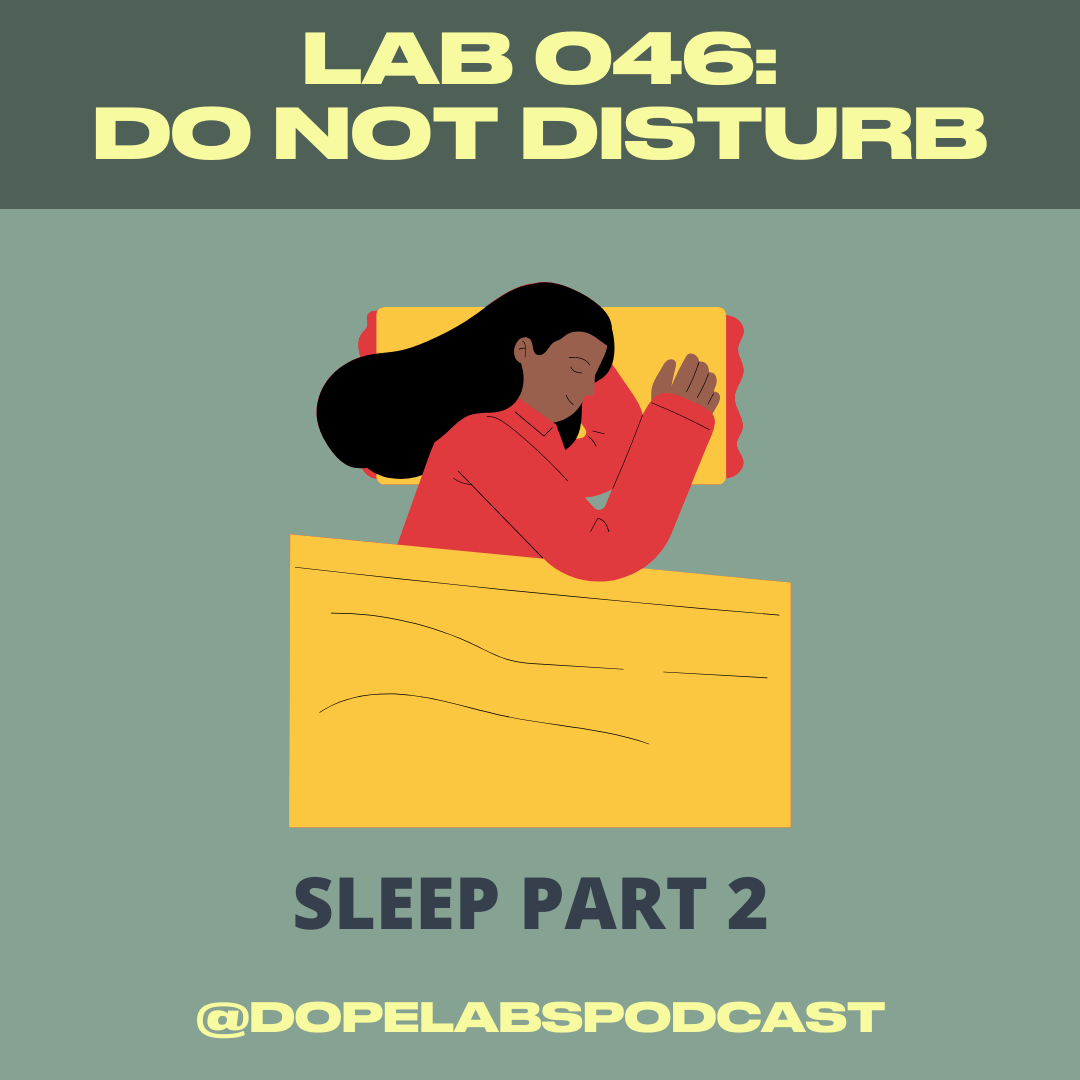
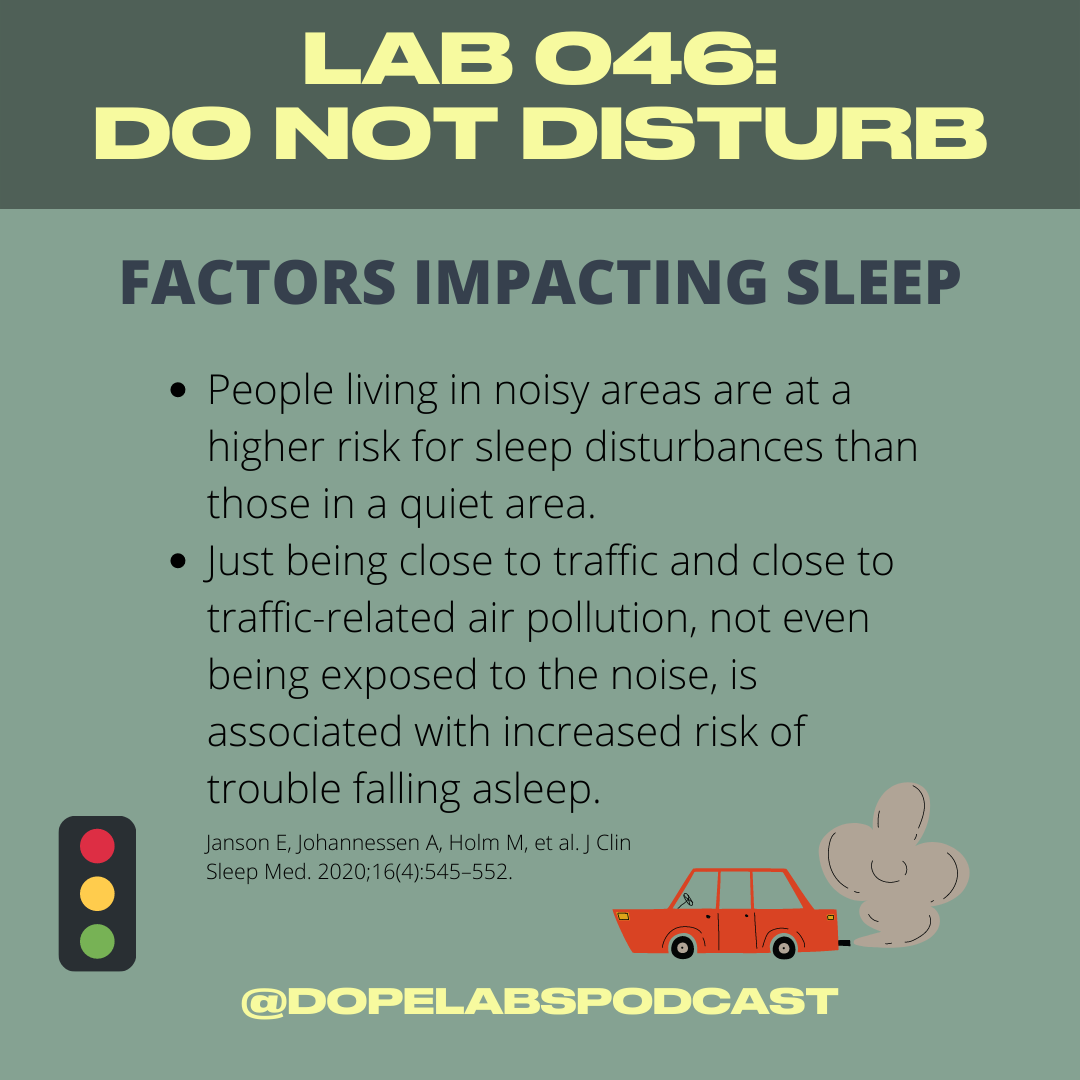
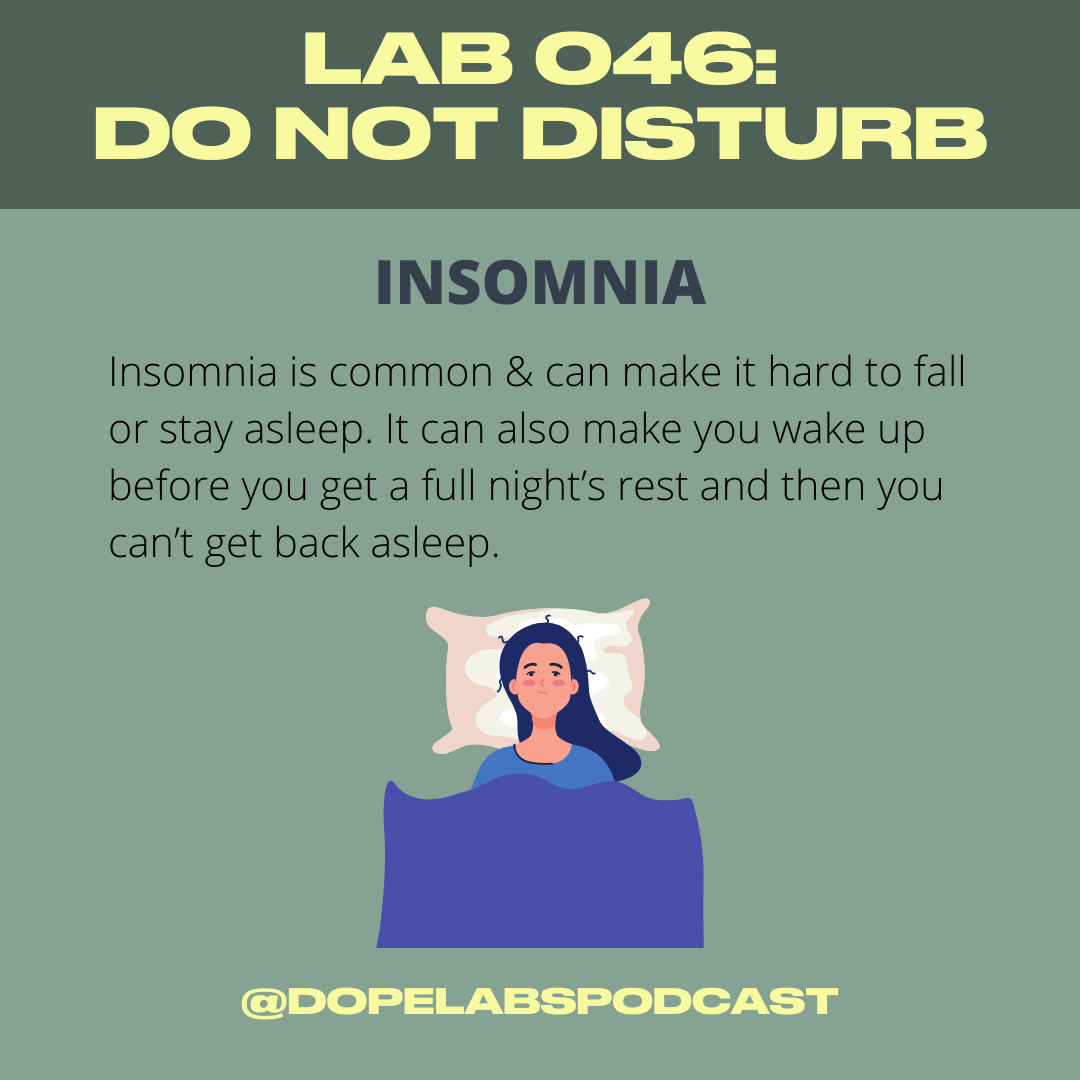
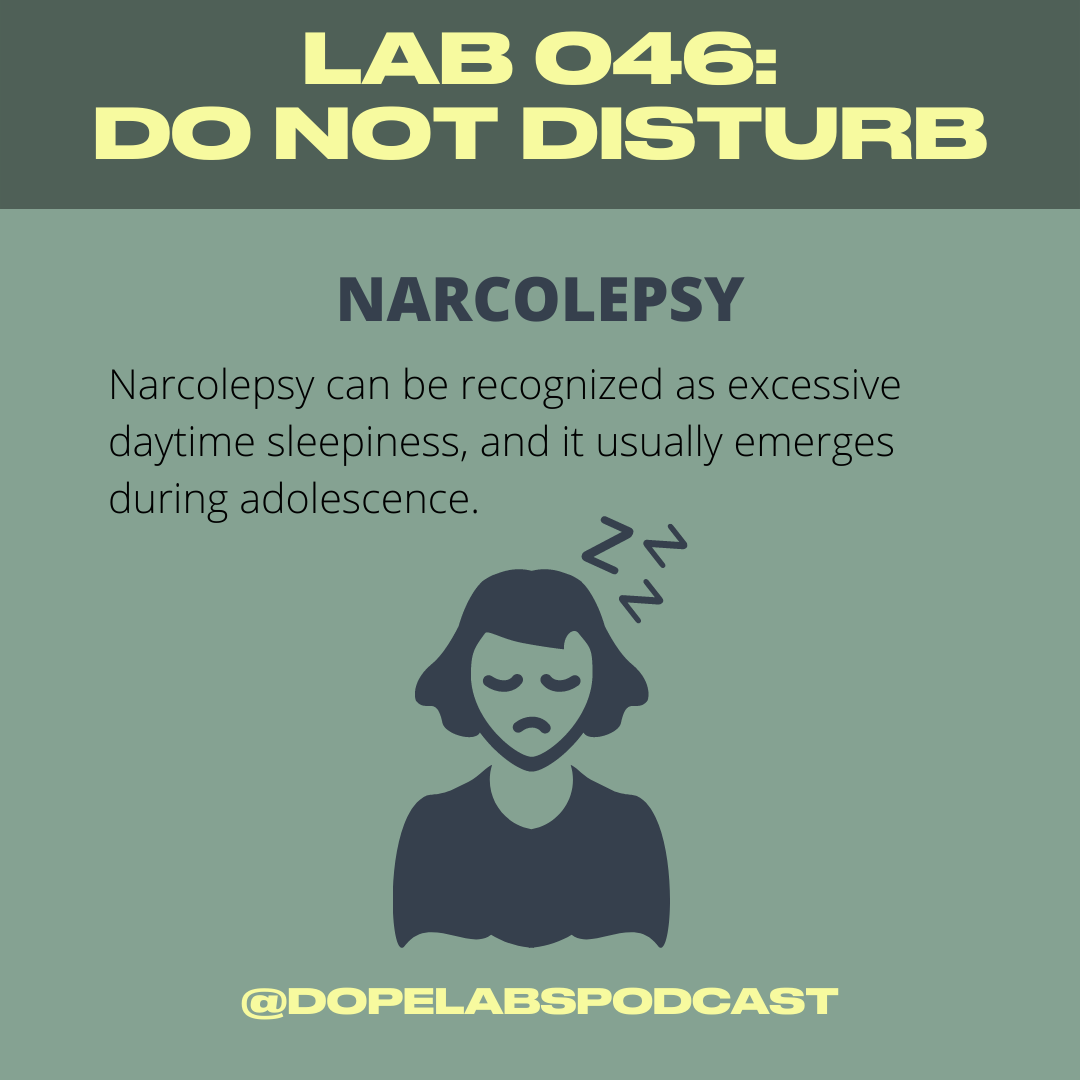
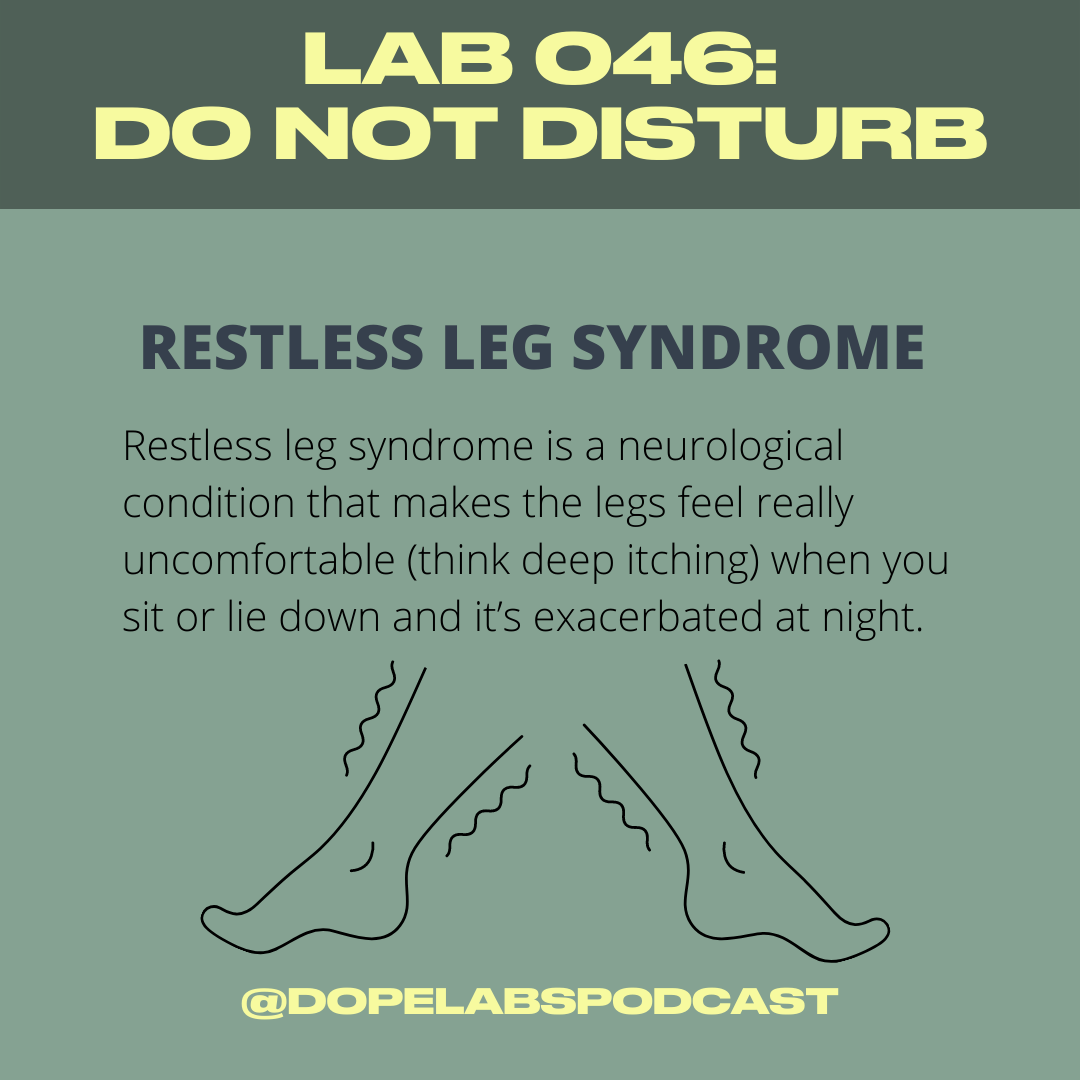
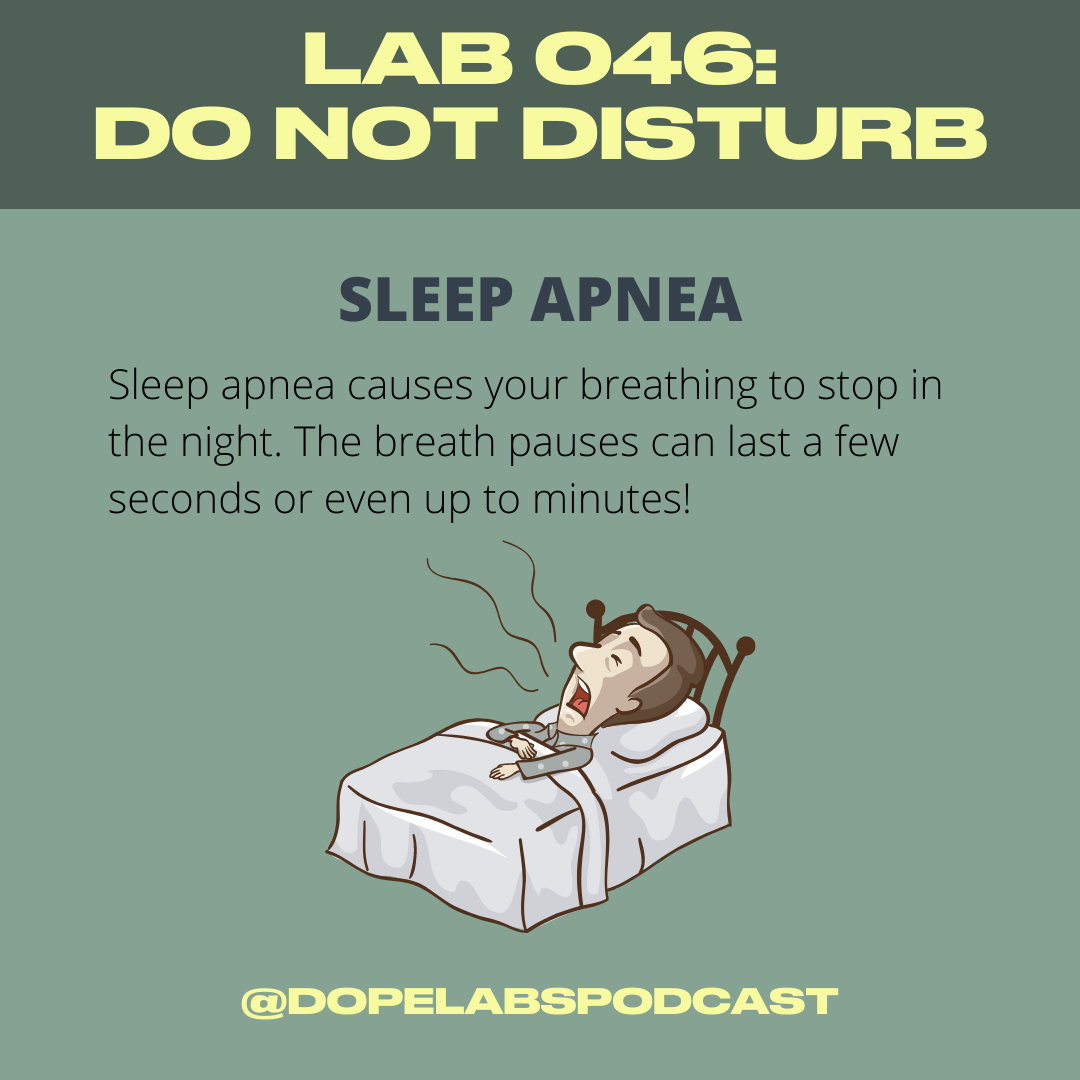
About This Lab
We’re back with part two of our exploration of sleep. Last week we covered the benefits of good, quality sleep, and we highlighted who is (and who isn’t) getting it. We talked about the the stages of sleep, and what how it affects your health when you’re not getting enough. This week, we’re unpacking the environmental and psychosocial factors associated with poor sleep, sleep disorders, and treatments for sleep - like medicines and meditations.
Environmental and Psychosocial Factors Associated with Poor Sleep
Environmental factors that affect sleep can include noise, nearby traffic & lights, and air pollution.
People living in noisy areas are at a higher risk for sleep disturbance than those living in a quiet area. Also, sleep disturbances were related to various personality traits: neuroticism, subjective noise sensitivity, and noise annoyance.
Check out this article in the LA Times - “You can’t ignore all that road noise: It could shorten your life” by Lisa Mulcahy
Just being close to traffic-related air pollution, not even being exposed to the noise, is associated with increased risk of trouble falling asleep.
Psychosocial factors are characteristics or facets that influence an individual psychologically and/or socially. - K Thomas et al 2020
Are sleep patterns influence by race/ethnicity - a marker of relative advantage or disadvantage? Evidence to date. Johnson DA et al 2019
Strengthening the case for early-life interventions to address racial/ethnic sleep disparities across the life-course using an exposome approach. Gaston and Jackson 2021.
Stress and other medical conditions that may make you uncomfortable can affect your sleep quality.
If you work overnight, you likely are sleeping during the day when the sun is out. We talk about how light affects our body’s internal clock through a subset of cells in the retina of our eyes. This makes us think about how staring at the TV or our cell phones at night is probably not the best idea if we’re trying to fall asleep!
In Antarctic winters without a lot of daylight, our retinas become more sensitive to blue light, circadian rhythm stability decreases, and sleep-wake timing is delayed.
In mice, it seems like green light may promote sleep, while blue light (like the light emitting from our computers and cell phones) may promote arousal/wakefulness.
What happens to our eyes as we age and how does this affect sleep?
Sleep Disorders
Dr. Jean-Louis told us there are over 80 sleep disorders! Who knew there were so many? We talked more about a few of them - insomnia, sleep apnea, narcolepsy, and restless leg syndrome.
Insomnia is common & can make it hard to fall or stay asleep. It can also make you wake up before you get a full night’s rest and then you can’t get back asleep.
Sleep apnea causes your breathing to stop in the night. The breath pauses can last a few seconds or even up to minutes!
Narcolepsy can be recognized as excessive daytime sleepiness, and it usually emerges during adolescence.
Restless leg syndrome is a neurological condition that makes the legs feel really uncomfortable (think deep itching) when you sit or lie down and it’s exacerbated at night.
Treatments for Sleep
Dr. Jean-Louis told us to focus on getting enough daylight and activity during the day to keep our sleep-wake cycles regulated. He encouraged us to avoid over the counter medicines unless you have explicit instructions and guidance from a physician.
Sometimes we’re looking for a simple fix to our problems, so we turn to the local drugstore. But sleep aids don’t help if there’s an underlying health problem keeping you from getting the proper amount of rest.
“Sleep aids: Understand over the counter options” by Mayo Clinic Staff
“Melatonin Isn’t a Sleeping Pill. Here’s How to Use It.” by Amelia Nierenberg
Meditation and its regulatory role on sleep. Nagendra et al. Front. Neurol., 18 April 2012
Additional Reading
Why We Sleep: Unlocking the Power of Sleep and Dreams by Matthew Walker, PhD
Guest Experts
Our guest expert this week is Dr. Girardin Jean-Louis, director of the Translational Sleep and Circadian Sciences Program in the Department of Psychiatry and Behavioral Sciences at the University fo Miami Miller School of Medicine.
